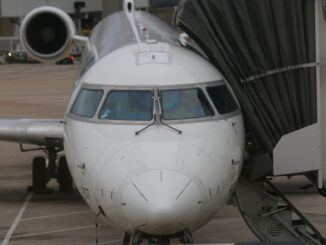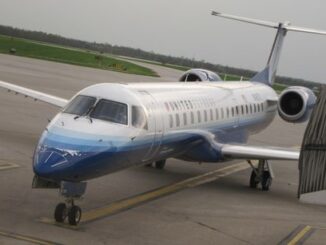| (Photo by Todd DeFeo) |
Federal authorities say a new rule aimed at reducing lengthy tarmac delays is working.
The rule stipulates that airlines can only keep passengers waiting on the tarmac for three hours before it would be required to let them disembark. There was only one flight in August that experienced a three-hour delay — a steep drop from the 66 such flights in August 2009. According to authorities, the one flight with a delay was diverted.
“These numbers show that the tarmac delay rule is protecting passengers from being trapped indefinitely aboard an airplane — with little or no increase in canceled flights,” U.S. Transportation Secretary Ray LaHood said in a news release. “Also, it shows that the hard work the airlines are putting into implementing the rule is paying off. With the summer travel season behind us, it appears that the rule is working as planned.”
The three-hour limit applies to domestic flights, and it allows for some exceptions, including safety or security and if returning to the terminal would disrupt airport operations. Domestic airlines that operate international flights to or from the United States “must specify, in advance, their own time limits for deplaning passengers, with the same exceptions applicable,” the DOT previously said.
The rule, which requires that airlines display on their website information about flight delays for each domestic flight they operate, was adopted following a series of incidents in which passengers were stranded on the ground aboard aircraft “for lengthy periods,” the DOT said. Critics say the new rule could force airlines to cancel more flights to avoid the steep fines — up to $27,000 per passenger — associated with the new rule.
In August, airlines also boasted an 81.7 percent on-time arrival rate, better than the 79.7 percent on-time rate a year earlier and the 76.7 percent on-time rate in July.




